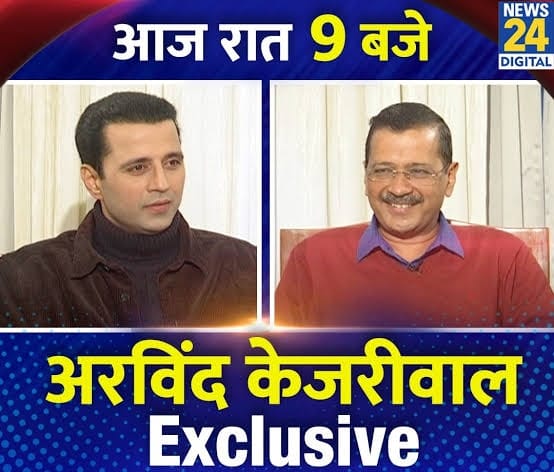

In an era where media integrity is more important than ever, the line between journalism and political partisanship appears increasingly blurred. A case in point is the Twitter timeline of Amit Panday, Punjab Bureau Chief of News24, a prominent Hindi news channel. A close examination of his social media activities suggests a troubling pattern of overt support for the Aam Aadmi Party (AAP), raising serious questions about media neutrality and the ethical boundaries of journalism.
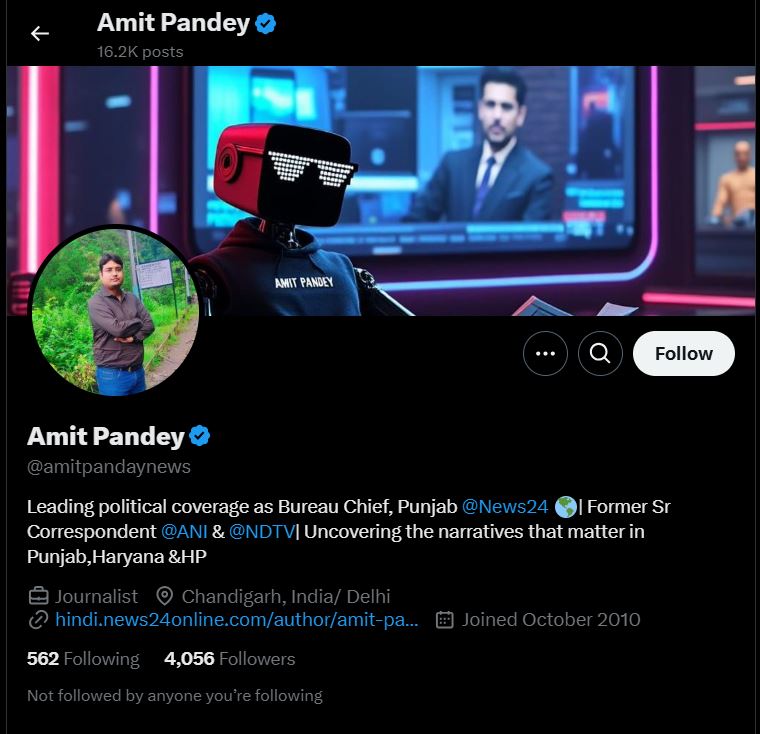
The role of a journalist is to inform the public with unbiased, fact-based reporting. However, Panday’s social media timeline paints a different picture. His posts appear less like those of a journalist and more akin to a spokesperson of the AAP. From uncritical promotion of AAP’s policies to frequent criticism of opposition parties, the content raises doubts about his impartiality.
Here in this post, Amit Panday is quoting the farmer leader Jagjit Singh Dallewal about the Top Court’s observations on his Fast unto death. But if you see clearly there’s nothing that Dallewal is saying being mentioned in SC’s observation. All it has said is that its first priority is to see Mr Dallewal getting back to normal Health conditions, which is the duty of the Punjab State Govt and it should strictly adhere to its instructions before listening to anything further in the matter.
Mr Bureau Chief nowhere tries to present the actual story and sticks to what suits best to his political masters.
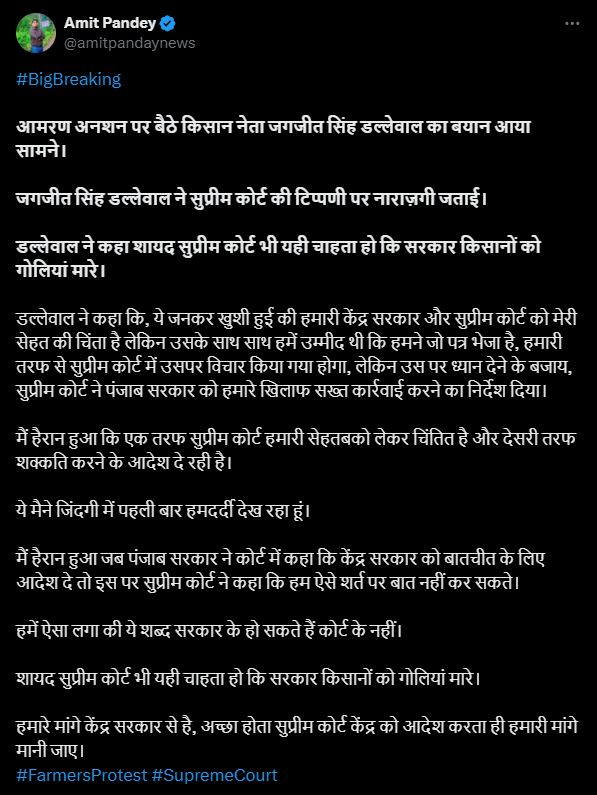
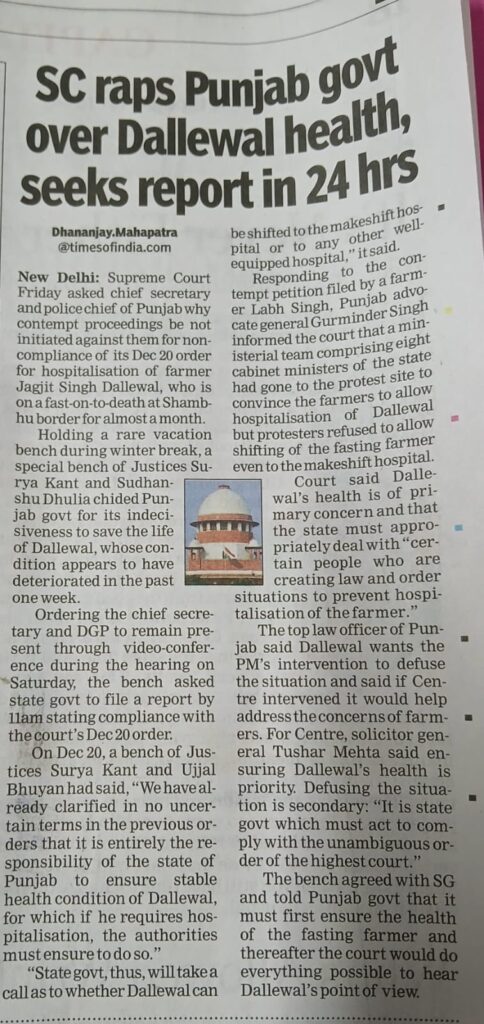
The problem is not limited to personal expression. When a senior journalist of a major news organization adopts a partisan tone, it reflects poorly on the outlet itself. Viewers are left wondering if News24 is more interested in pushing a political agenda than delivering unbiased news.
Some more Very Very Important posts from his Time Line relating to Punjab :
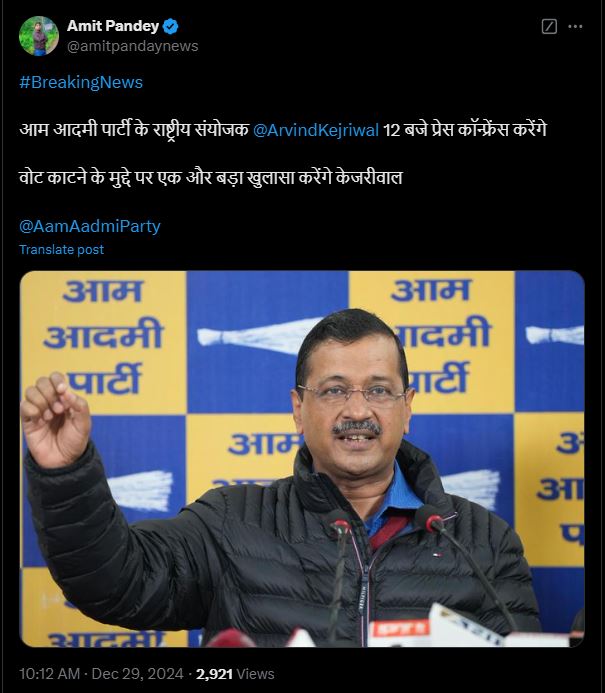
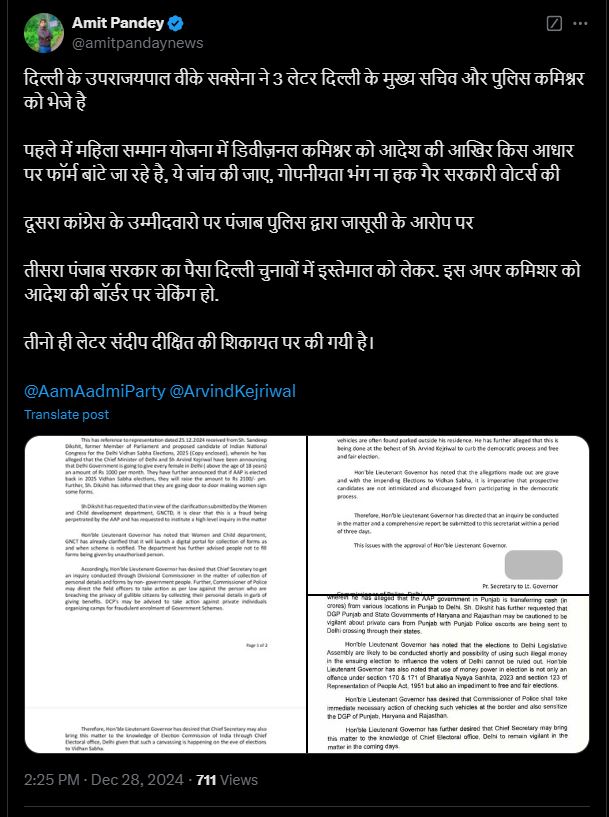
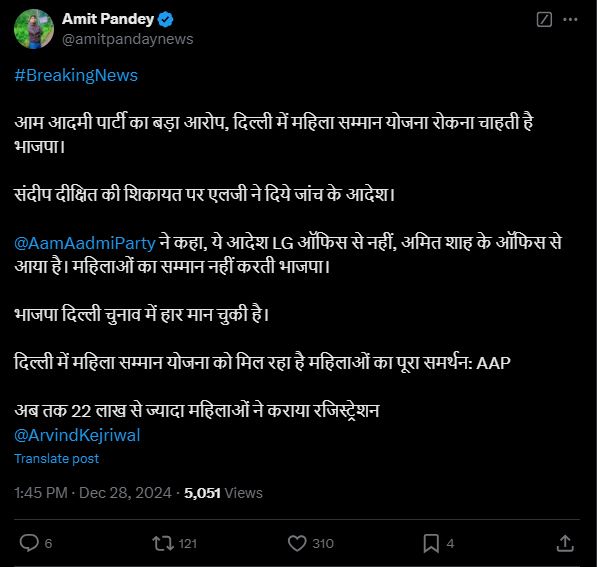
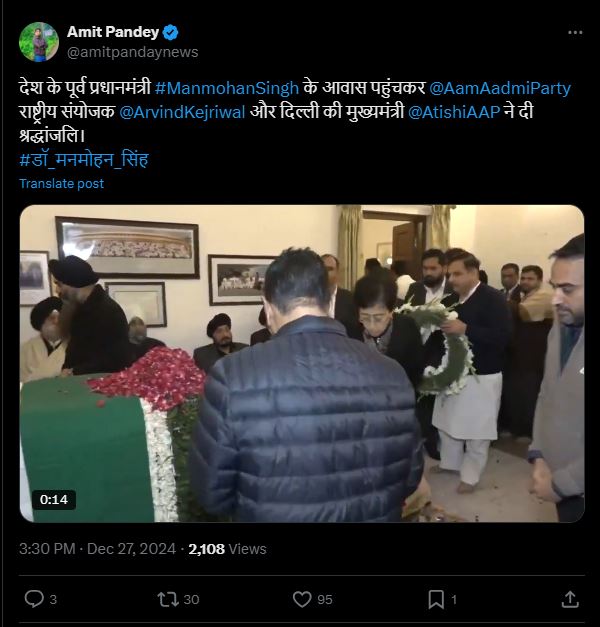
This apparent alignment between News24 and the AAP is not just an ethical issue; it undermines democracy. Media outlets are supposed to act as watchdogs, holding those in power accountable. When journalists or their organizations become cozy with political parties, this critical function is compromised.
The nexus between the AAP and News24, as suggested by Panday’s conduct, risks creating a dangerous precedent where news becomes propaganda. It raises important questions:
Can viewers trust News24’s coverage of Punjab politics, given this apparent bias?
Is the channel serving the public interest, or has it become a mouthpiece for political interests?
Media outlets and journalists must be held accountable for their conduct. News24 owes its viewers an explanation regarding the political leanings of its Punjab Bureau Chief. The channel must reaffirm its commitment to unbiased reporting by ensuring that its representatives uphold journalistic ethics both on and off the screen.
Furthermore, the broader media community must confront the growing trend of political partisanship. Without corrective action, the public’s trust in journalism will erode further, leaving democracy vulnerable to manipulation.
It shudders us to no length to see the kind of Penetration that the AAP has managed to achieve in these sold-out Media outlets. Lets Hope that the viewers get to call out their mischief and react.